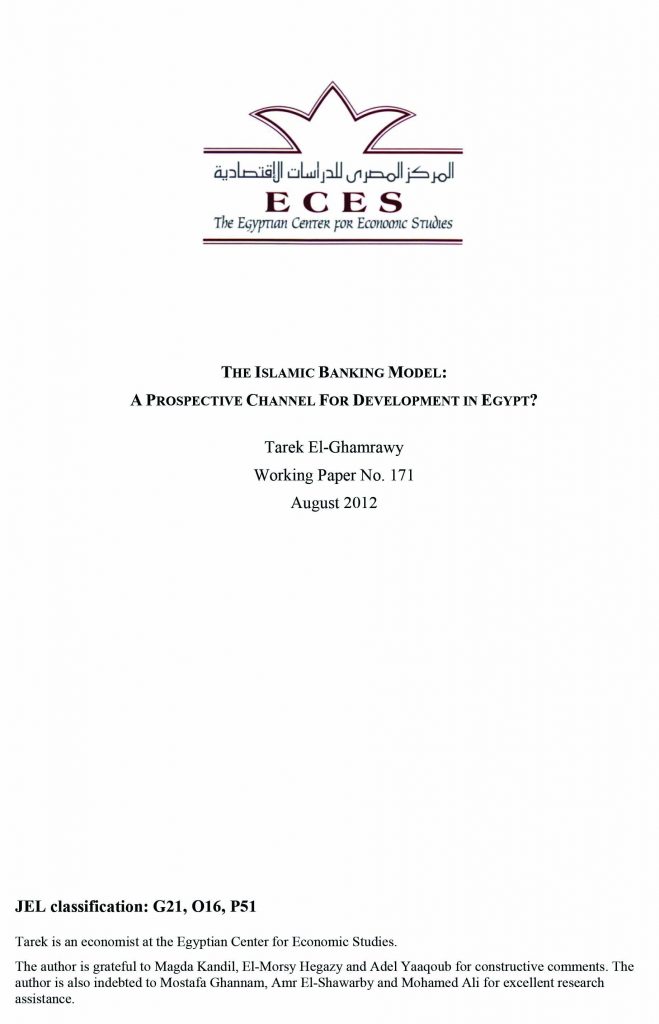Abstract:
An efficient banking system is a key element of the growth process. Despite banking reforms undertaken over the past two decades, the Egyptian banking sector has yet to play an effective role as an engine of growth. This study discusses the potential role of Islamic banking in enhancing development in Egypt, especially that the profit-and-loss sharing model has been gaining more interest globally. To that end, the study first builds a theoretical model for the investment process in both traditional and Islamic banking systems. The aim is to highlight the potential of Islamic banking in efficient resource allocation and increasing investment. The study then uses regression models for a sample of 616 traditional and Islamic banks in 19 developing countries during 1996-2010 to show that Islamic banking improves financial intermediation indicators. Nevertheless, evidence indicates that the financial instrument structure in Islamic banks favors quasi-debt instruments over profit-and-loss sharing instruments. This is mainly due to the difficulties faced by Islamic banks, which prevent them from increasing investments. To conclude, the study offers a policy framework to benefit from Islamic banking in Egypt, in light of the various challenges facing this model and lessons learnt from international experience.

